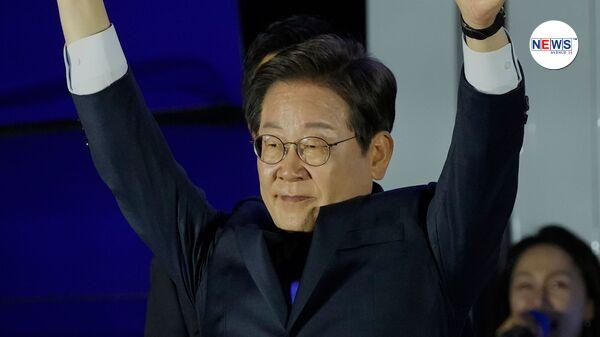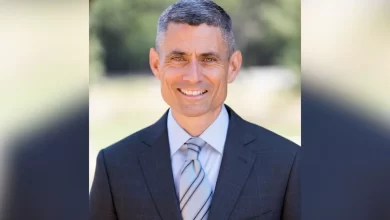
Lee Jae-myung elected President of South Korea; Kim Moon-soo concedes defeat
Liberal opposition leader Lee Jae-myung has been elected president of South Korea, the country’s National Election Commission has officially declared, following a decisive victory in a snap election triggered by the impeachment of his predecessor, Yoon Suk Yeol, over a failed attempt to impose martial law.
Lee secured 49.3% of the vote, defeating Kim Moon-soo of the conservative People Power Party (PPP), who garnered 41.3%, with over 99% of ballots counted.
“I humbly accept the people’s choice,” Kim told journalists, conceding defeat even before the final tally. “I congratulate President-elect Lee and wish him success.”
Lee’s victory brings to an end months of political upheaval triggered by the short-lived martial law imposed by ousted conservative President Yoon Suk Yeol.
An earlier exit poll by South Korea’s top broadcasters — KBS, MBC, and SBS — projected Lee to win 51.7% of the vote, well ahead of Kim’s 39.3%. Pre-election polls had also indicated a likely victory for Lee, fueled by widespread public anger toward the conservatives following Yoon’s controversial imposition of martial law.
Record turnout
Voter turnout reached nearly 80% of South Korea’s 44.39 million eligible voters — the highest in a presidential election since 1997.
Call for unity
Addressing supporters outside parliament after polls closed, Lee pledged to serve with responsibility and bring unity to a divided nation.
“We can overcome this temporary difficulty with the combined strength of our people, who have great capabilities,” Lee said.
A rise from poverty to power
Lee, a former child laborer, rose to political prominence as mayor of Seongnam and later as governor of Gyeonggi province. His campaign capitalised on voter anger toward the conservative establishment and economic inequality.
Known for his sharp critiques of the political elite, Lee’s rise was built on promises of social reform.
Balancing act on foreign policy
While Lee has previously faced criticism for leaning toward China and North Korea, he has in recent months worked to reaffirm South Korea’s alliance with the US and promote a trilateral relationship with the US and Japan.
Our alliance with the United States will remain the cornerstone of South Korea’s foreign policy, Lee stated during his campaign.
He has taken a cautious approach to North Korea, saying he’s open to dialogue but skeptical about any near-term summit with Kim Jong Un. “It will be very difficult,” Lee admitted, “but we must remain open to peaceful engagement.”
On trade tensions, Lee advised patience, arguing it would be a mistake to rush negotiations in pursuit of an early agreement with Washington. Kim Moon Soo has said he would meet with Trump as soon as possible.
Challenges ahead: Trump, North Korea, and domestic division
Lee faces a tough diplomatic landscape, with US tariff pressure under Donald Trump and North Korea’s advancing nuclear arsenal posing immediate challenges.
Domestically, Lee inherits a politically polarised country. His critics label him a populist who may deepen divisions. Kim Moon Soo, in his concession, warned that Lee’s win could lead to an “excessive concentration of power.”
In a Facebook post earlier Tuesday, Lee urged voters to “deliver a stern and resolute judgement” against the conservatives for imposing martial law. During a campaign speech on Monday, he warned that a victory for Kim Moon-soo would signal “return of the rebellion forces, the destruction of democracy and the deprival of people’s human rights.”





